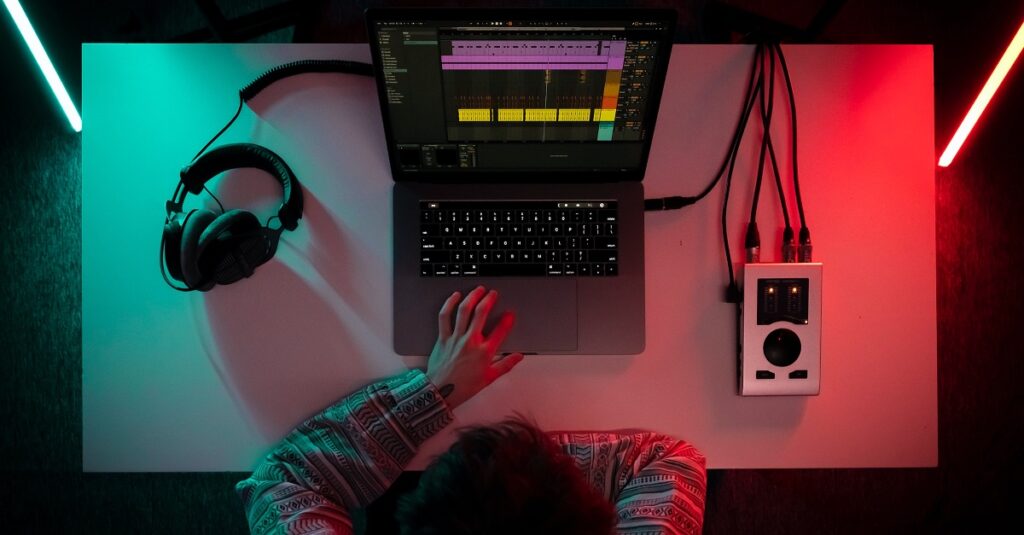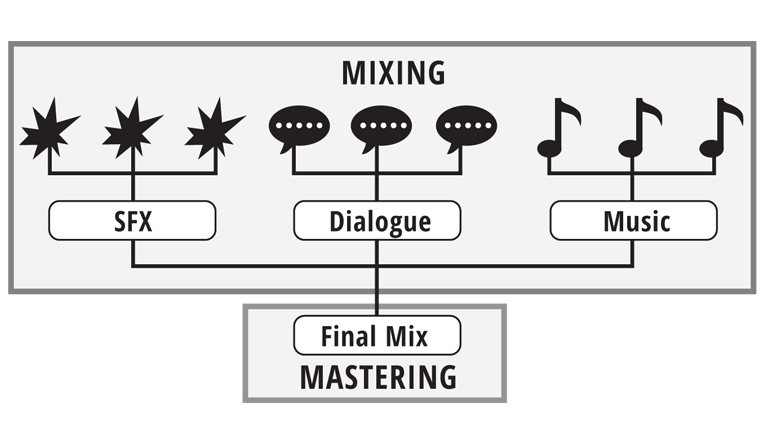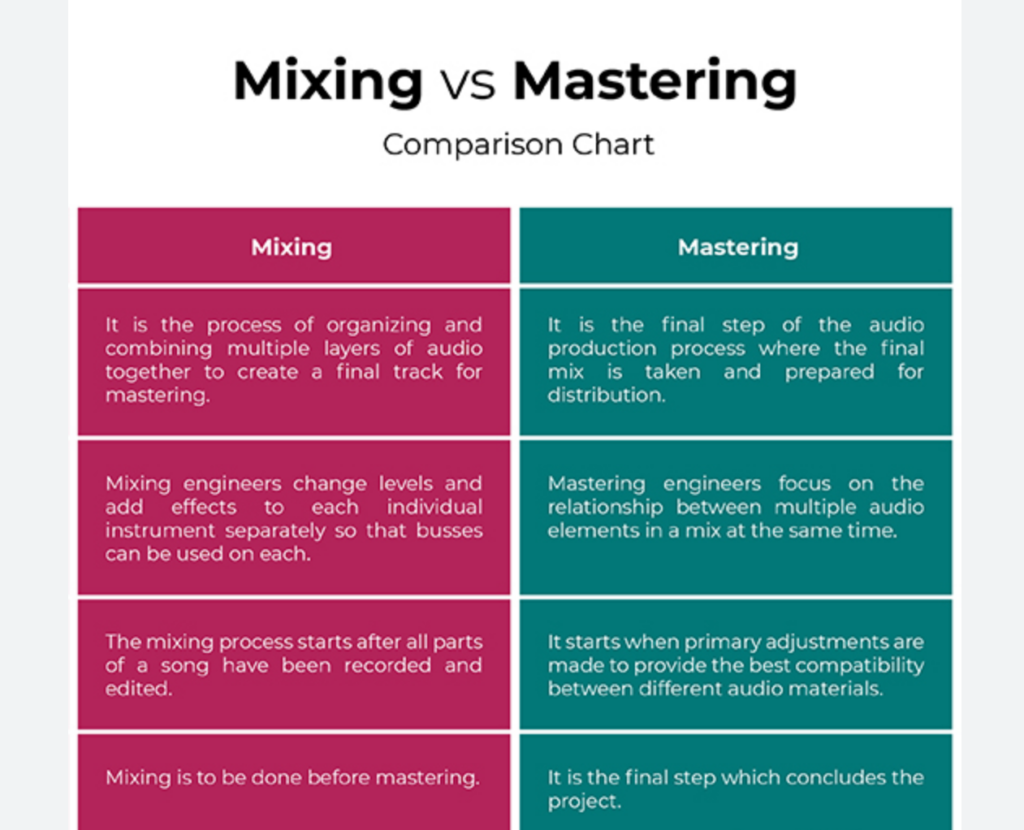Table of Contents
Introduction

Curious about the difference between mixing and mastering music? Whether you’re a budding music producer, an aspiring audio engineer, or simply a music enthusiast, understanding the distinction between these two processes is essential. In this article, we’ll delve into the nuances of mixing and mastering, unraveling the mystery behind each step and providing insights into the world of music production.
Understanding Mixing vs. Mastering
Before we explore mixing and mastering, let’s grasp the fundamental disparities between these pivotal stages in music production. While both are integral to creating a polished track, their objectives and techniques diverge significantly.
Basic Steps in Music Production

To comprehend mixing and mastering, let’s first understand the broader context of music production. From conceptualizing the song idea to the final touches of mastering, each phase contributes to creating a captivating musical masterpiece.
What is Mixing?
Mixing lies at the heart of music production. It’s the intricate process of blending individual tracks harmoniously to create a cohesive sonic experience. From adjusting levels to sculpting frequencies, mixing involves myriad techniques aimed at achieving sonic perfection.
What is Mastering?
Mastering is the final polish that transforms a raw mix into a professional-grade track ready for the world to hear. With a keen focus on enhancing volume, improving sound quality, and ensuring compatibility across platforms, mastering adds the finishing touches that elevate the track to new heights.
Do I Need Mixing or Mastering?

As you embark on your music production journey, you might wonder whether mixing or mastering is necessary for your tracks. While both processes play vital roles in refining and enhancing your music, their necessity depends on your goals and aspirations as an artist.
Which is Harder: Mixing or Mastering?

The realm of audio engineering presents various challenges, but aspiring producers often ponder: which is harder, mixing or mastering? While both demand technical expertise and artistic finesse, they entail distinct complexities and require different skill sets.
Does Mixing and Mastering Make a Big Difference?
In the pursuit of sonic excellence, the role of mixing and mastering cannot be overstated. But do these processes truly make a significant difference in the quality and appeal of your music? From enhancing clarity and balance to optimizing volume and dynamics, mixing and mastering wield transformative powers that elevate your tracks from good to great.
Quick Recap

As we conclude our exploration of mixing and mastering, it’s essential to reflect on the insights gained. With a deeper understanding of these crucial processes, you’re now equipped to navigate the intricate realm of music production with confidence and finesse. Whether you’re embarking on a new project or refining your skills, may this knowledge serve as a guiding light on your musical journey.





No comment